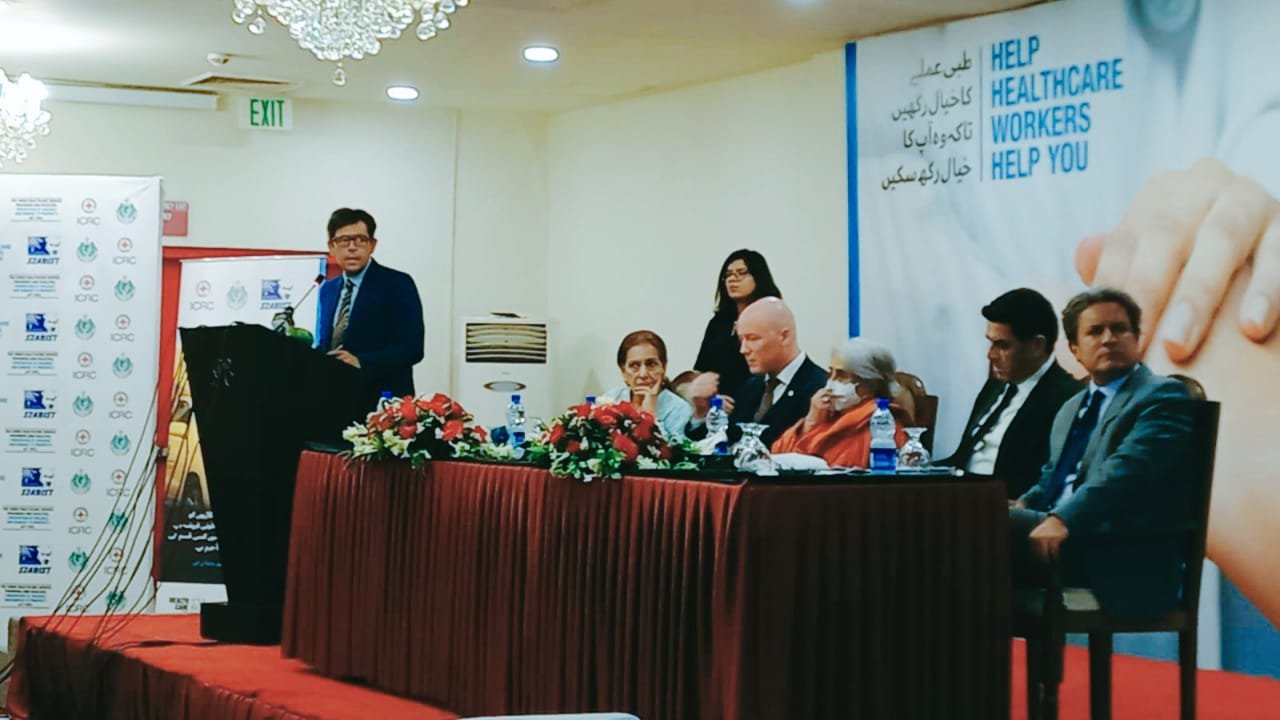The new Act aims to protect healthcare professionals and institutions, stop violence against them, prevent loss or damage to property and equipment in healthcare facilities.

In an effort for protection of Sindh’s healthcare system, the Sindh Health Department, SZABIST, and the International Committee of the Red Cross (ICRC) have launched a campaign to raise awareness of the right of way for ambulances and the recently passed Sindh Healthcare Service Providers and Facilities (Prevention of Violence and Damage to Property) Act 2021.
In Pakistan, there is a serious problem with violence against medical staff and facilities. Reactive violence is common in healthcare settings, according to academic research done in Pakistan as part of the ICRC’s Health Care in Danger (HCiD) Initiative.
This research discovered that the main causes of this violence are patients and their companions’ frustration with waiting times, unreasonable expectations, a lack of resources, overcrowding, and the carelessness of healthcare professionals.
Speaking at the awareness-raising event for the law, Sindh Health Minister Dr. Azra Fazal Pechuho said, “We hope that this Act will deter violence and guarantee uninterrupted healthcare services. This Act is a major step towards achieving safer healthcare in Sindh. I also implore our citizens to prioritise ambulances’ right of passage and give them the right of way.”
The new Act aims to protect healthcare professionals and institutions, stop violence against them, prevent loss or damage to property and equipment in healthcare facilities, and ensure that healthcare services are provided continuously.
It expands the scope of the relevant legal definitions to provide protection for healthcare professionals and clarifies the obligations of healthcare organisations to uphold the rights of patients and their attendants.
The ICRC’s head of delegation in Pakistan, Nicolas Lambert, spoke at the event and appreciated the Sindh Health Department and SZABIST’s dedication and cooperation in this endeavour.
The ICRC has been promoting evidence-based initiatives in cooperation with a variety of stakeholders, including public health institutions, medical academia, healthcare authorities, and the Pakistan Red Crescent Society, to improve the safety of healthcare in Pakistan.